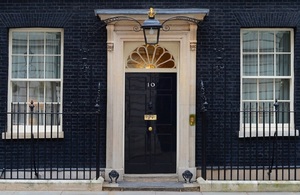500 hectare planting boost for England’s Community Forests
Over 500 hectares will be planted with trees across England’s ten Community Forests, from Yorkshire to Somerset, backed by £12.1 million of investment, the government announced today (6 December). This will also build the pipeline of projects for community planting in future years.
The new programme – Trees for Climate – will see trees planted in community forests across the country over the next five months. When mature, the trees will eventually store over 100,000 tonnes of carbon dioxide, playing an important role in the meeting the government’s net zero emissions by 2050 target. The project will also reduce flood risk, increase sustainable UK grown timber, provide more places for nature and biodiversity to thrive, and increase people’s access to and enjoyment of woodland. The funding will also create new jobs and secure existing ones within the forestry and environmental sector, helping to boost local economies as part of a green recovery.
Forestry Minister, Lord Goldsmith, said:
Through this exciting new programme we will build back greener, as more communities – particularly those in urban environments – will have access to nature, with real benefits for health and wellbeing.
Trees are the backbone of our urban and rural environments and essential in tackling the climate emergency. This vital programme will plant trees where they are most needed to stem flooding and provide more places for nature to thrive.
Paul Nolan, Director of The Mersey Forest and the Chair of England’s Community Forests, said:
Our Trees for Climate programme will plant millions more trees around England’s town and cities, targeted at areas where they can make the greatest difference, in particular to local quality of life and levels of health and wellbeing.
The national network of Community Forests has been working for over 25 years to bring nature closer to people and local communities and is perfectly placed to deliver real change, on the ground.
Chair of the Forestry Commission, Sir William Worsley, said:
This exciting new programme will benefit local communities all across England – helping to increase access to nature, creating much needed jobs in the environmental sector and bringing invaluable benefits to people’s health and wellbeing.
The £12.1 million boost will be a huge help both for getting trees in the ground, but also enabling each of the Community Forests to ensure they are well-managed in the long term, making sure these new woods can thrive to the fullest extent.
Exchequer Secretary to the Treasury, Kemi Badenoch, said:
This investment will support growth right across England by creating new local jobs. It will also reduce flood risk, improve air quality and help make areas more attractive places to live. We are committed to supporting Britain to build back better and greener – and projects like this play a key role in doing so.
The programme is being delivered by a collaboration of ten Community Forest organisations, supported by the national charity The Community Forest Trust. The following Community Forests will carry out the planting:
- The Forest of Marston Vale, Bedfordshire
- Great Western Community Forest, covering the North Wessex Downs to the River Thames
- The Greenwood Community Forest, west Nottinghamshire
- The Mersey Forest, which covers Merseyside and North Cheshire
- City of Trees, Greater Manchester
- Forest of Avon Trust, which covers Bristol and Avon
- HEYwoods, which covers Kingston upon Hull and the East Riding of Yorkshire
- Thames Chase Trust, which covers East London and South West Essex
- White Rose Forest, which covers Leeds city region and North and West Yorkshire
- Forest of Mercia, which covers Staffordshire and the West Midlands
Trees for Climate will help deliver against goals in the government’s 25 Year Environment Plan and support Nature Recovery Networks across England.
The government recently consulted on a new England Tree Strategy to accelerate tree planting and improve the management of our existing trees and woodlands. The new Strategy will help shape policies to plant and look after more trees for the climate, nature, people and the economy.
The £640 million Nature for Climate fund will help us deliver the English portion of the government’s manifesto commitment to increase tree planting to 30,000 hectares per year across the UK by 2025, alongside peatland restoration and nature recovery.
The Prime Minister also recently announced a further £40 million additional investment into the government’s Green Recovery Challenge Fund – this will go towards creating and retaining thousands of jobs in the environmental sector, such as ecologists, project managers, tree planters and teams to carry out nature restoration.
